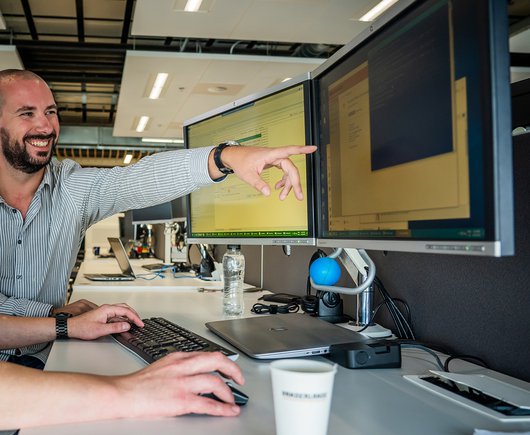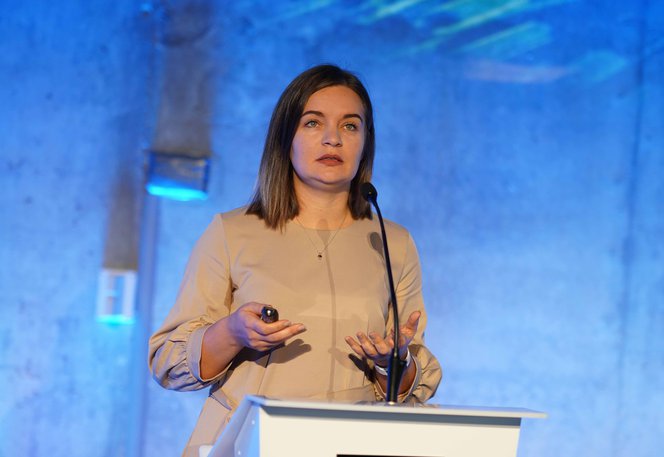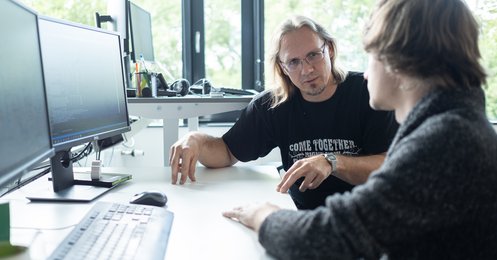GLASS HALF-EMPTY
Negativity may well be the biggest threat to creativity, growth and spirit. Now, I’m not talking about the odd moment where we have a grumble at something that’s annoyed us, or when we’ve rolled out of bed on the wrong side, that happens to all of us from time to time. Nor do I advocate closing our eyes to all of the issues and drawbacks in our daily working life. The problem manifests in those who constantly see only the obstacles and issues, and who tend to only focus on the negatives. This unwillingness to see beyond the impediments robs one of new opportunities and creative solutions that could otherwise be developed out of the situation. Another destructive feature of negativity is the fact that this negative outlook is not limited to the original protagonist, it’s contagious. It will rip through a team quashing both its morale and productivity, as well as hurting patient zero himself. Other team members tend to dislike working with such negative people, their ideas become harder to sell to the group, which can easily lead to them becoming ostracised.
BE WHAT YOU WANT TO SEE
So, what about the attributes that really help to make a team zing? Leaders love team members that focus on what is working, that look for new opportunities and that offer solutions, no matter how small. Team members appreciate the same qualities in their leaders and colleagues as well.
In order to not give in to negativity, as a rule, assume positive intent. Meaning, if not lost entirely, can easily get misconstrued in today’s sea of electronic communication: endless rows of emails, multitudes of faceless instant messages and so on. So, rather than interpret them subjectively according to a personal attitude or mood, one should always assume that the sender means well. This will increase individual and team job satisfaction, as well as clear the way for effective collaboration.
Now, collaboration is both a sign of a healthy team as well as a means to shape one. Creativity builds on the ability to view things from a variety of different angles. The volume of information that needs to be considered when making decisions is exponentially growing and expanding beyond the reason of individual professionals. As a result, breakthroughs and superior solutions are borne out of shared ideas and experiences, which is why organisations seek team members that are willing to share their knowledge, collaborate with and learn from others, and that are open-minded and flexible.
On a personal level there may be several barriers to collaboration, the fear of being wrong or making a mistake in front of peers being one of them. This fear is in fact not limited to junior members of a team, but also manifests among their more senior counterparts too. What is important to accept is that a valuable contribution can be as little as simply offering an alternative way of looking at the same thing. Other colleague may avoid collaboration for fear of their personal expertise being overlooked, but at the same time they then lose the opportunity to learn from others.
Whatever the reasons behind an unwillingness to collaborate, one should keep in mind that what is expected by colleagues is for team members not to give in to fear and to come out of their shells by way of sharing the benefit of their own knowledge and insight. After all, the more one gives the more one receives.
IT ALL STARTS WITH YOU
Leadership starts with each member of the team, at the basic and personal level. It means looking out for what is best for the team and actively working on controlling the traits that may be unhelpful. We’ve all come across the person who criticises or points out other’s mistakes in the false belief that in this way they will boost their own value, but this achieves exactly the opposite. It is a sign of insecurity and a lack of self-esteem, which will, without doubt, prevent one from learning and growing, whilst at the same time eroding trust.
After all in today's organisations it is increasingly accepted that mistakes are essential for learning, we all experience failure at some point or other. Rather than something to be feared, failure should be accepted and harnessed as a tool for learning and improvement.
In composing our teams we look for people that have the growth mindset - those who accept their shortcomings as a benchmark against which to measure their growth. They acknowledge their mistakes, accept and seek feedback as essential for their development and they take ownership of their learning and improvement.
TAKING OWNERSHIP
In the workplace, as in life, what commands a premium and garners respect is responsibility, or put another way, taking ownership. It doesn’t help to find excuses or lay blame when things haven’t worked out perfectly. What organisations and teams need are people who take ownership of what hasn’t turned out as planned, as well as the determination to help find the required solutions. For our teams we seek straight-shooters that take responsibility, not just for personal successes, but for their own as well as their team’s failures, and then help to come up with solutions. These colleagues understand their potential influence on the culture of the team and the change they can effect within their environment, who then do their best to harness their approach for the team’s success. These are the colleagues, who at any point ask themselves, “Have I done everything that I can?” and, “What else can I do to improve things?”
WHO ARE YOU, OYSTER OR CLAM?
You are the choices that you make, and those choices will shape not only you, but every facet of your life as well. It is all there at your fingertips, choose those elements of positivity, collaboration, growth-mindset and ownership and the world truly is your oyster.



